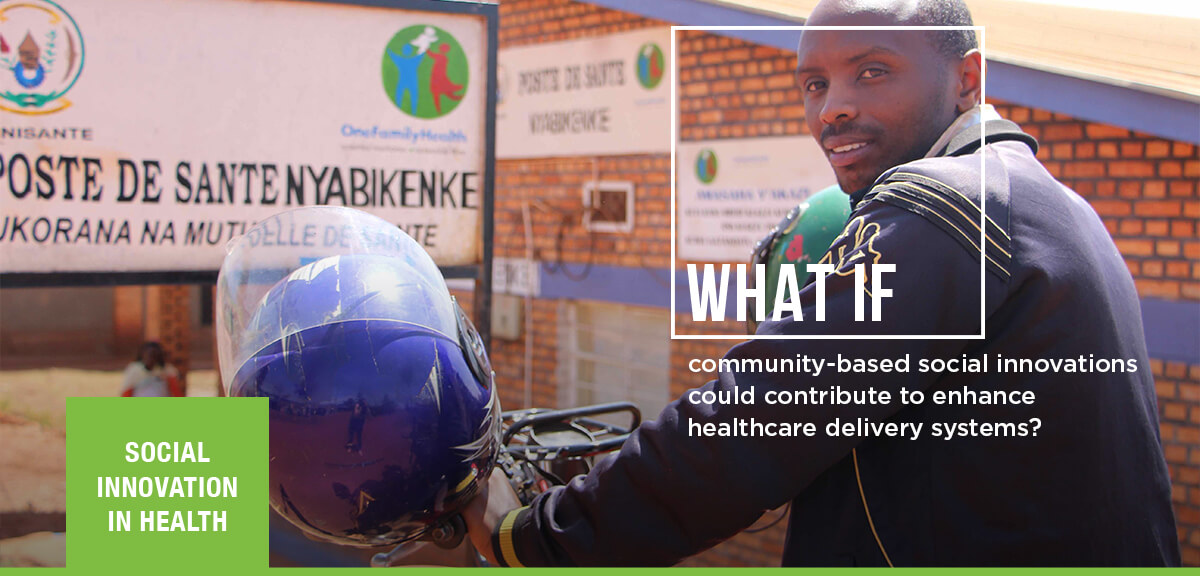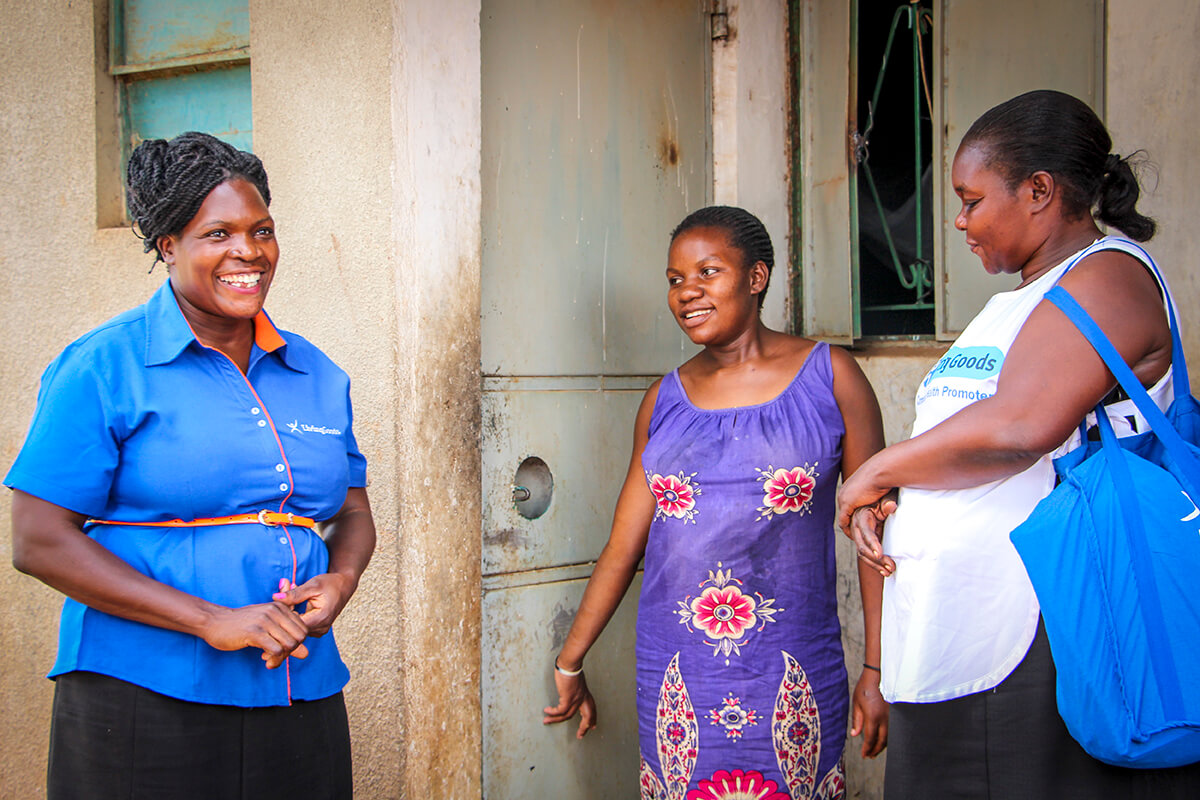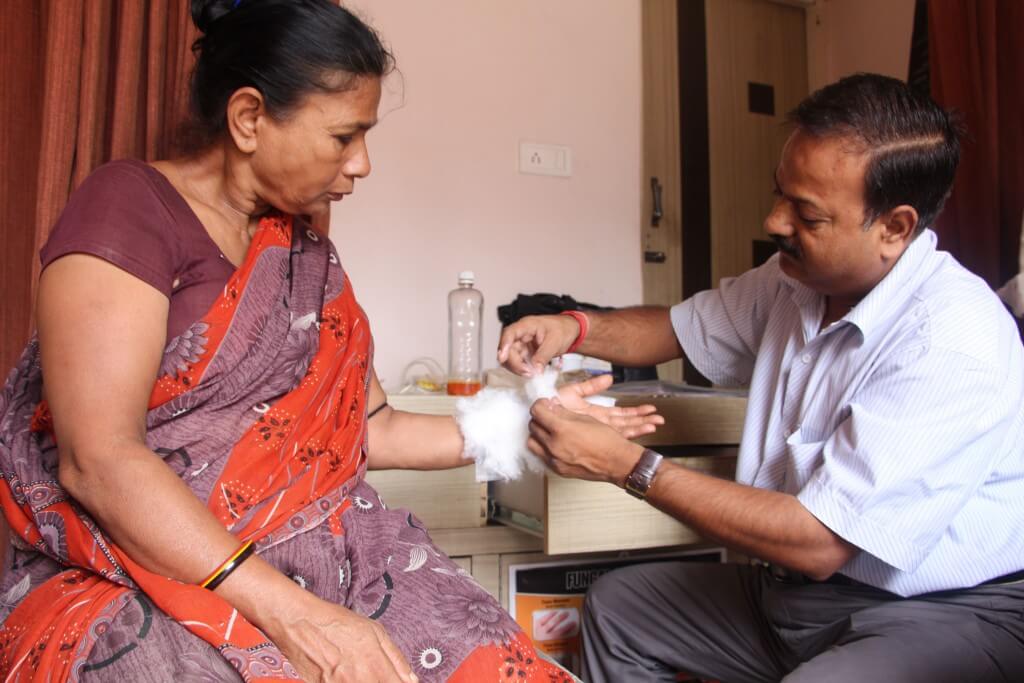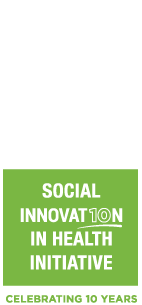Fostering a countryled approach

FOSTERING A COUNTRYLED APPROACH
By Beatrice Halpaap
We believe that in-country capacity to stimulate, support and scale social innovation is absolutely critical to ensure sustainability of effort and outcome. Therefore, capacity strengthening is a primary focus area of the Social Innovation in Health Initiative.
From 2 to 3 November, 16 participants from different backgrounds will meet in Cape Town to explore the various mechanisms of capacity strengthening that could be applied. These experts are experienced in different fields. From general global health to global health research, in particular social innovation. But they have one thing in common: they have working knowledge of capacity strengthening mechanisms applied at various levels. These include individual, institutional and system levels.
At the meeting, capacity strengthening will be a focus point. It plays an important role at various stages of the social innovation process – from its creation to its development stage and integration into the health system, where dissemination starts.
A key aspect of social innovation is the partnership between community members, NGOs, public health systems and the private sector. In fact, it is crucial to the success of social innovation. Therefore, strengthening in-country capacity to bring all these actors together – to discuss and identify new ways to bridge the delivery gap – will also be discussed at the meeting.
This discussion will be continued at the Evidence-based Consultation on Social Innovation in Health – a meeting of key like minded actors, taking place in Annecy and Geneva from 2 to 4 December. The aim of this convening is to promote social innovation in healthcare delivery, but also to shape the research and capacity-strengthening agenda. Through this, we hope to learn more about the mechanisms of capacity strengthening. We look forward to building upon existing knowledge and experience to further shape our vision.
IDEAS THAT CHANGE LIVES
LIVING GOODS
Q & A

WHERE ARE YOU BASED?
Uganda and Kenya.
WHAT PROBLEM/S DO YOU ADDRESS?
The Living Goods Community Health Platform brings proven solutions to prevent, diagnose and treat malaria, diarrhoea, respiratory infections and other neglected tropical diseases to communities that need them most.
Families in developing countries often don’t have access to quality healthcare. Public health systems are chronically underfunded, understocked and understaffed. The private sector health landscape suffers from fragmentation and weak regulation, resulting in expensive medicine and counterfeit products.
Community health workers (CHWs) play a critical role in improving the health of populations in low-resource settings. However, volunteer CHW programmes are typically plagued by low productivity and high attrition rates, which is not surprising as poor villagers can’t afford time away from productive labour. The programmes lack funding and proper supervisory support, as well as adequate logistical support for supplies and medicines.
Living Goods empowers networks of micro-entrepreneurs to earn a modest income by delivering life-changing health products and services, such as diagnosis and treatment of malaria. The model doesn’t rely on volunteers, short-term stipends or unlimited donor funding.
WHAT IS YOUR INNOVATIVE SOLUTION?
Living Goods has built an innovative, cost-effective approach to improve the health of families in need. It combines the best practices from community health and successful direct-selling businesses, like Avon. The community health entrepreneurs go door-to-door, teaching families how to improve their health and wealth, and selling impactful products like simple treatments for malaria and diarrhoea, fortified foods, clean birth kits, efficient cook stoves and solar lights. Living Goods provides them with ongoing training, financial support, access to quality health treatments and products, performance incentives and breakthrough mobile technology.
Our agents are equipped with smartphones that allow them to register and track pregnancies, diagnose and treat childhood illnesses such as malaria, and follow up with customers in person and via SMS. We have real-time data to drive rapid, informed decision-making at every level of operations.
HOW CAN YOUR SOLUTION BE IMPLEMENTED IN OTHER COUNTRIES?
We provide advisory services to like-minded organisations that aspire to build high-impact, cost-effective entrepreneurial CHW systems. We help these partners design innovative, customised adaptations of the Living Goods model that are best suited to their context.
mDOC
Q&A

WHERE ARE YOU BASED?
Bangladesh.
WHAT PROBLEM/S DO YOU ADDRESS?
We address the lack of access to qualified doctors for the vast rural population in Bangladesh, and the resulting consequences. Bangladesh is one of 57 countries in the world that faces a critical shortage of doctors. The doctor to patient ratio is 1:2 500 – one of the worst in the world. More than 70% of the population resides in rural communities, while qualified doctors are disproportionately concentrated in city centres and urban hubs. This means that quality medical attention requires multiple trips to urban hubs – making the cost of healthcare extremely costly for the rural poor. These trips often result in extortions and exploitation by middlemen working as agents for low-end clinics and health centres.
As a result, rural Bangladeshis don’t see a qualified doctor until their problems have progressed to severe disease states. Instead, they seek treatment from untrained and ill-equipped healthcare providers close to home. This results in inappropriate self-medication, over-prescription of drugs, antibiotic/painkiller/steroid abuse, exploitation and extortion from referrals. Even surgical procedures are performed by unqualified traditional ‘healers’. This leads to widespread patient mismanagement and poor patient outcomes for a large number of cases that could easily be addressed by a qualified doctor.
mDoc bridges the divide between rural patients and urban doctors through a local intermediary (a rural pharmacist), empowered with training and an ICT system that allows remote consultations and diagnosis. While our solution is not disease specific, diseases like malaria and intestinal worms have already been successfully addressed through our system. We have also successfully diagnosed tuberculosis and sped up treatment through referrals.
WHAT IS YOUR INNOVATIVE SOLUTION?
We take quality healthcare to underserved areas cost-effectively by leveraging existing infrastructure and cutting-edge technology. Existing rural pharmacists are trained to use a tablet to facilitate telemedicine consultations with urban doctors, culminating in a printed prescription and medicines.
The patient is asked to pay a fee for this service, which is shared by the pharmacist and mDoc, resulting in a sustainable and self-replicating micro-enterprise model. When a patient comes to a rural mDoc pharmacy, our Android app is used to enrol them in the system with biometrics and history. It determines the patient treatment order with vitals and basic medical examinations. The pharmacist is guided by a video consult with specialists, who remotely send a signed prescription that is printed on site. Our trained franchisee pharmacist records the patient’s medical data, does basic physical exams and communicates it to the remote doctor. The pharmacist also explains the prescription and dispenses medicines.
HOW HAS YOUR SOLUTION IMPROVED HEALTHCARE?
Over the first few months of our pilot operation, we have provided consultations to about 1 260 patients for a wide spectrum of medical conditions.
FROM OUR PARTNERS

by Pamela Hartigan
Innovation and Entrepreneurship A Lesson from the Skoll Centre
Every few years, a new buzzword or phrase seems to parachute from nowhere and virally spread across countries and continents, becoming a hot topic for exploration and discussion.
For the last five years, ‘innovation’ and ‘entrepreneurship’ have dominated the business lexicon, no doubt spurred by the success of web-based innovators and entrepreneurs primarily based in Silicon Valley. Since then, ‘innovation’ and ‘entrepreneurship’ have been the focus of thousands of newspaper articles, academic theses, books and media programmes, not to mention the global movement to create institutions and centres dedicated to the subject.
The Skoll Centre, established in 2003 and based at Oxford University’s Saïd Business School, was one of the first adherents among academic institutions (outside of the USA) to wholly support innovation and entrepreneurial endeavour dedicated to addressing social and environmental challenges. For the last 11 years, the Centre has provided full MBA scholarships to proven entrepreneurs who have realised that the impact of their organisations could be enhanced with a greater understanding of the elements of business concepts and practices.
Today, there are 60 Skoll Scholar alums all over the world who continue to apply market-based solutions to a myriad of social, environmental and economic problems. Reflecting the accelerated interest in innovation and entrepreneurship among students from non-business disciplines, the Skoll Centre has dramatically widened its engagement with students across the University, offering a rich range of opportunities to inspire and engage them in entrepreneurial approaches, wherever their career paths take them. The Centre also supports those who wish to launch and grow their own ventures.
The Skoll Centre has been a pioneer in promoting actionable insight through supporting research that contributes to innovation and entrepreneurial thinking and practice. It has engaged faculty – teaching mainstream business courses in finance, accounting, operations and marketing to integrate relevant concepts and practices drawn from entrepreneurial approaches and/or the approaches being pursued by their growing intermediary organisations. It also works across the University, supporting faculty in other disciplines to undertake research that contributes to innovation and entrepreneurial thinking and practice.
The Skoll Centre is very proud of its achievements in talent development and research promotion. Globally, the Centre is most recognised for catalysing deep exchanges with a global community of innovators through targeted annual convenings. The Skoll World Forum is best known and, since 2010, the event has drawn over 1 000 participants from all over the world.
What are some of the lessons we have learned over the past eleven years? There are many, but I will focus on one particular lesson that is relevant to the Social Innovation in Health Initiative (SIHI) currently spearheaded by the Skoll Centre, in partnership with the Bertha Centre for Social Innovation and Entrepreneurship at the University of Cape Town’s Graduate School of Business, and with the support of the World Health Organization.
Spurred by the global hype over innovation and entrepreneurship, and coupled with people’s aspirations to find a greater purpose to which they can dedicate their time and talent, it seems everyone wants to be an entrepreneur focused on social and financial wealth creation. The current and growing wave of accelerators, incubators and social venture competitions – combined with people’s interest in solving the problems of the world – have created the impression that all you need are passion and a respectable business plan to become a successful entrepreneur. Innovative ideas are what happens when you take a shower. They appear miraculously from thin air into your head.
But if you look at what it takes to truly change entrenched, albeit malfunctioning systems and practices in any field, including health, the notion that one can come up with an innovative solution to those challenges in a weekend hackathon defies all common sense and observation.
Successful innovators and entrepreneurs have spent decades designing, implementing and refining demand-driven approaches to complex social and environmental problems. Their achievements have followed a continuous process of trial-and-error in specific contexts. They have learned who are the key stakeholders to involve, the signals to watch for and the pitfalls to avoid. Development organisations and governments would be hard pressed to generate the accumulated knowledge gained through the hands-on experience and long-term commitment involved in the social innovation process.
The key that unlocks the social innovation door is the notion of ‘apprenticing with the problem’. This approach flies in the face of the way entrepreneurial education is currently undertaken. The Skoll Centre’s premise is that one cannot solve a problem one has not lived or knows precious little about – and this is what students are constantly being asked to do. The social innovators identified in the SIHI have long apprenticed with the problem of healthcare delivery. What they are now grappling with is how to scale their solutions.
By encouraging collective action and a systems thinking approach to social change, the Centre is focused on reshaping the conversation about how academic institutions support social innovation and entrepreneurship. Through its Apprenticing with the Problem initiative, we hope to provide inspiration and a framework to help students analyse complex social issues, while inspiring them to build upon existing solutions. Ask any successful social innovator how long this process takes. It is certainly longer than any period spent in an accelerator, incubator or weekend hackathon.
FROM THE
COMMUNITY
In 2011, a small group of social entrepreneurs came together to discuss the issues plaguing global health. Each individual was supporting and scaling an innovative model and they realised the potential for bridging the delivery gap. What began as an informal meeting has grown into a collaboration that is improving healthcare delivery globally.
SOCIAL INNOVATION
IN ACTION
We received an inspiring range of innovations
– view our gallery to read more about the submissions.
OUR PARTNERS

